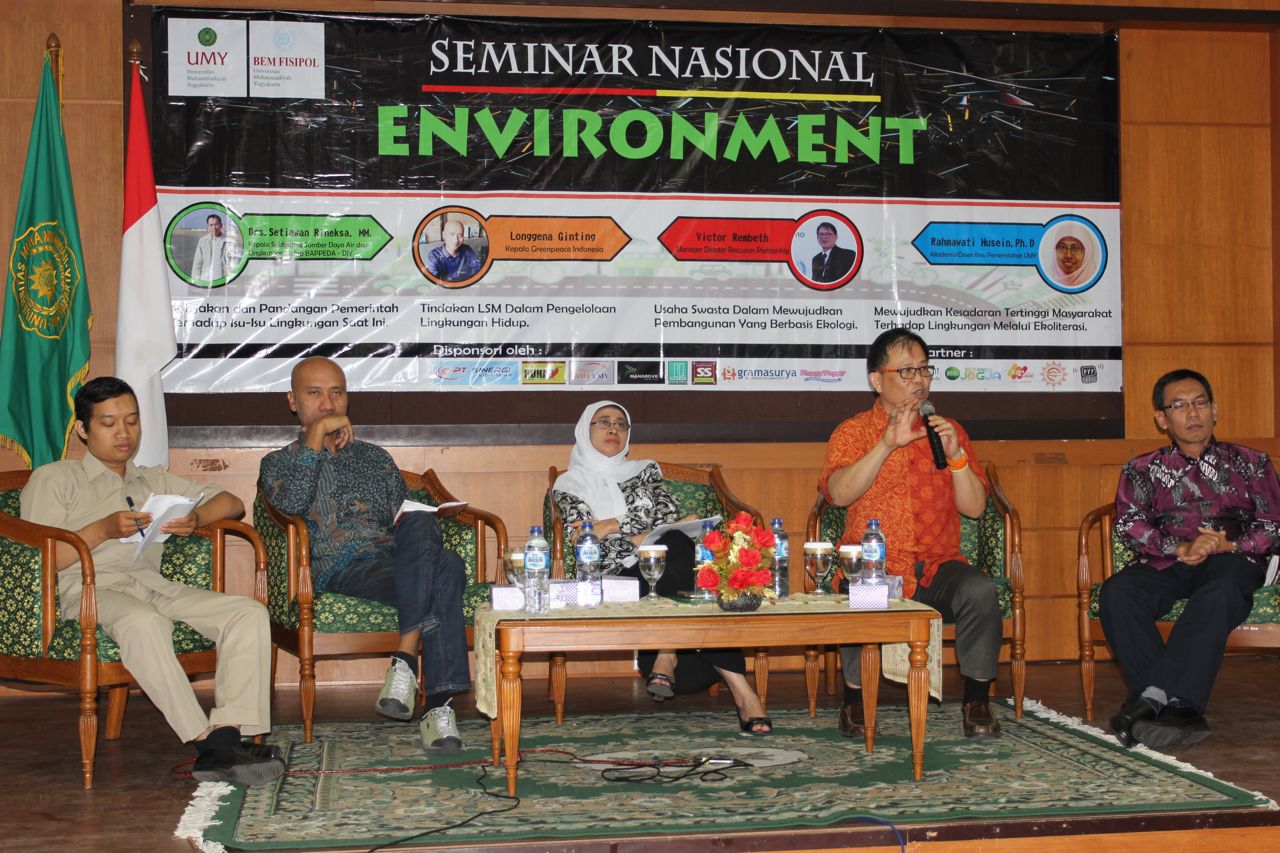Environment damage and climate change in this world turn into the hottest issues. The degradation of the earth is showed by the relationship between human and nature, production patterns, consumption, and unsustainable waste production. For instance, plastic rubbish in the sea was accounted eight billion kilograms per year, and Indonesia is the second greatest country after People’s Republic of China as the result of less care of Indonesian people about the issue.
Instead of concerning with ‘revolusi mental’ (revolution mental), government should focus on the use of renewable energy, and do energy revolution as well as eco-literacy of energy to public. The number of coal miners is escalating, but the coal is unrenewable natural resources and has big impacts on ecosystem and environment.
In an environmental seminar organized by Student Executive Board (BEM) of Social and Political Sciences of Universitas Muhammadiyah Yogyakarta (UMY) on Monday (29/2) at A.R. Fachruddin B, floor 5, Head of Indonesia Greenpeace, Longgena Ginting conveyed that Indonesia is the greatest country in producing greenhouse gas emissions. The circumstance will bring the damage of the forests which will influences the climate change. “Tropical rain forest was cut down for monoculture of export commodity. On the other hand, Indonesia imports food from other countries since this country confronts renewable energy crisis,” he stated.
Various ways were undertaken to energy revolution in renewable energy like maintaining soil, forest and biodiversity by renewable utilization prioritizing food production, ensuring that energy production will not dispose food interest, stopping exploration and exploitation of carbon-based fuels as oil, coal, and gas, and investing renewable clean energy development. “Government and public should encourage food sovereignty and energy based on the ecological agricultural principals, local needs, and national economy. The unsustainable development model should be changed and the government should focus on local community,” he argued.
Eco-literacy is essential for public. A lecturer of UMY, Dr. Rahmawati Husein mentioned the eco-literacy aims at postponing the environmental change and consequences scientifically, psychologically, and socially, as well as raising public awareness of environment,” she stated.
Public may realize that this earth should be conserved, and people can create sustainable community appreciating intrinsic values of the nature. “Public should possess strategies and new insights on undertaking renewal,” he inserted.
Besides, an environmental practitioner, Victor Remberth told that business, like mining business, is one of the issues due to environment. The mining waste can deaden community living near mining areas, and destroy environment. Most of businesspersons only focus on maintaining their business, and they do not see impacts on environment. Their responsibility has been given through CSR, but CSR is only responsible for human, instead of the environment,” he told.
Victor mentioned several roles of the business in environmental sustainability. First, the company is expected to improve itself and to become big power in escalating development. Second, the company shifts the way how the business runs by believing the sustainable development, CSR, and environmental aspects. “ISO 26000:2010 is a comprehensive social responsibility standard, and it is essential to be obeyed entirely as well as the guidance to think and to run the business,” he ended.







